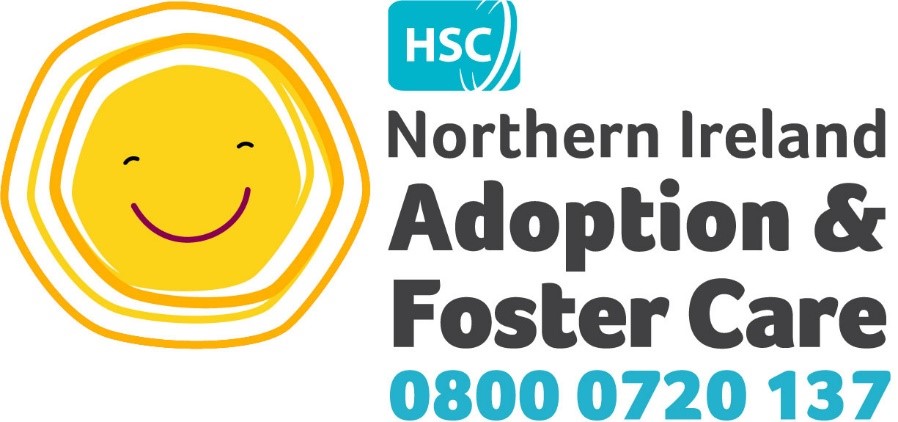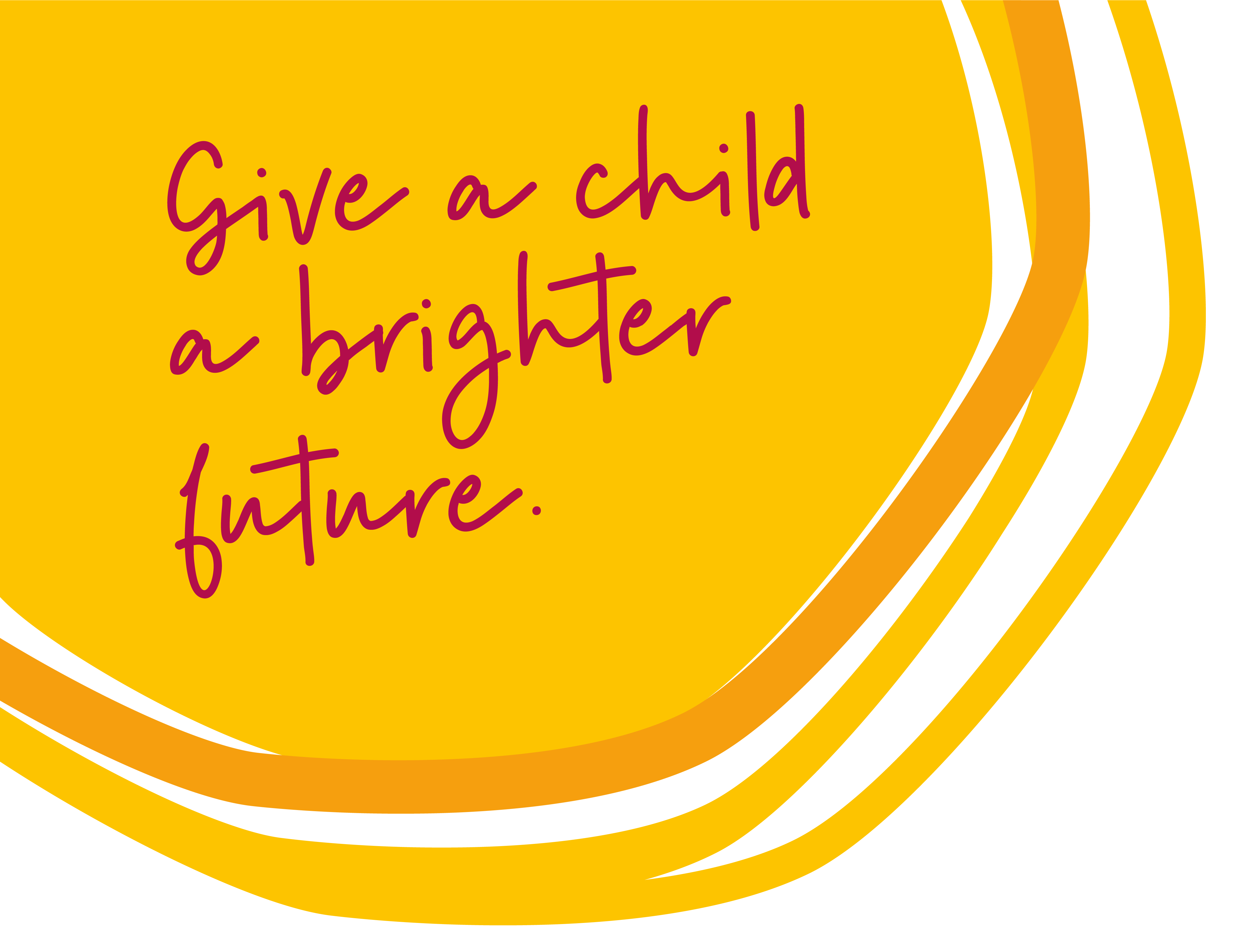THINKING OF FOSTERING?
Applications are considered from any race, religion, language, culture, gender, disability, age or sexual orientation.
WHAT IS FOSTER CARE?
Foster care provides children and young people who cannot live with their birth families with a safe and loving home where they can feel valued, respected, and cared for.
Children and young people may need foster care for many different reasons. Some parents have health related problems that prevents them from being able to adequately care for their child. Children may have experienced neglect or abuse, or a child may have a disability and their birth parents cannot meet their needs. Whatever reason exists, fostering provides these children with an alternative, caring home where they can be seen and heard.
WHO CAN FOSTER?
There is no such thing as a typical foster carer and each application will be assessed individually.
HSC NI Foster Care welcomes foster care applications from all backgrounds, regardless or marital or employment status, home ownership status or whether you are already a parent. Applications are considered from any race, religion, language, culture, gender, disability, age, or sexual orientation.
It is important that foster carers:
- Enjoy the company of children and young people
- Can offer a child or young person preferably their own bedroom but definitely their own bed
- Are available to attend all relevant training courses to enhance their foster care education and development
- Do not have a police record for violent or sexual offences
- Are available to meet with professionals involved in the child or young person’s life
TYPES OF FOSTER CARE
There are a wide range of children who need looked after for varying amounts of time. And, with the different types of fostering available, it is likely that you will find something which suits your family and lifestyle.
Each type of care offers the chance to help a child or young person during a very difficult time in their life.
Emergency care
This type of care means opening your home to children of all ages at very short notice, often late at night or over a weekend. Emergency foster carers sign up to a rota system, offering to care for a child or sibling group for a few days while their circumstances and care needs are being assessed.
Short term care
Short term foster care placements can be planned or unplanned, and the duration can range from an overnight stay up to two years depending on the circumstances of the child and their family. During this time social work staff will support and assess the child’s family in hope that the child can safely return to their care.
Long term care
If a child cannot be reunited with their family, long term options such long term foster care or adoption will be explored, again depending on the circumstances of the child and their family. In comparison to short term care, long term care indicates a more permanent foster care solution; it provides a safe place for a child to live until they reach an age of independence. The child often maintains contact with their birth family during this time.
Short Breaks for children with disabilities
Children with disabilities may be cared for during the day, in the evening or overnight. This type of care may be offered for one weekend or for a period of 2 to 3 weeks in order to give birth-parents or foster carers a break from their caring responsibilities. Short, respite breaks may be part of the regular routine of the foster child or children, creating opportunities to develop relationships with short breaks carers.
Supported Lodgings/ STAY (Supported Transition & Accommodation for Young people)
Supported Transition & Accommodation is offered to young people aged 16 to 21, who are not quite ready to live on their own. They may require accommodation as a move on from foster or residential care or they may be homeless or experiencing difficulties within their current home environment.
Kinship foster care
In some situations, a child’s social worker, together with the parents, will approach relatives and friends to see if they are able to look after the child if their parents aren’t able to care for them. Sometimes a Family Group Conference may be held to help families work out how children can be kept within their own community when they aren’t able to live at home.
If a looked after child goes to live with a relative, friend, or connected person, this person will become the child’s kinship foster carer. Kinship foster carers can be grandparents, older siblings, aunts, uncles, family friends or neighbours however they would be looking after the child on behalf of the Health and Social Care Trust. They will need to be assessed as a kinship foster carer and approved at a fostering panel; this assessment is carried out by a social worker from HSC NI Foster Care.
Children’s social workers are often keen to explore kinship foster care options first, before introducing the child to a foster family who they’re not familiar with. This is because it is easier for children to keep in touch with their parents, friends and other family members and helps them to maintain their religion, language, culture and heritage.
The commitment from kinship foster carers is something that gives a child great security and helps them to feel loved and comfortable within their own family environment. This experience has led HSC NI Foster Care to value, promote and support kinship foster carers.
BEING A FOSTER CARER
Becoming a foster carer is a life-changing decision. It is a hugely rewarding role but it is not without its challenges.
Children and young people in the foster care system have experienced some element of trauma; their emotional and/or physical needs may not have been met while living at home and they may have experienced abuse. Foster carers will need to show understanding and patience to help children feel to safe and secure. Each child and their family situation is unique so it is important to respect their experiences.
TRAINING
As a foster carer, you will undertake ongoing learning and development, working with social workers and relevant professionals in the lives of the children and young people.
HSC NI Foster Care has developed a broad training schedule which is continually updated to reflect new legislation, community and societal changes, and the challenges facing children and young people in foster care.
The schedule is available to all approved foster carers to ensure they feel informed, supported and confident in their role as foster carers.
SUPPORT
As a foster carer will have an allocated supervising social worker who will be your first point of contact for any questions or concerns you may have in your fostering role. Their role is to supervise and support you when children and young people are in your care. You will meet with them regularly and they are always just a phone call away.
The child or young person in your care will also have a social worker allocated by their childcare team. They can also provide you with advice and support about the child or young person.
The out of hours Regional Emergency Social Work Service provides an emergency social work service outside normal office hours, which responds to a wide range of people in crisis and issues which cannot be left until the next working day.
Support groups offer a much-needed opportunity to share concerns, answer questions, and make connections with other foster carers. These groups are often attended by carers who have in depth experience, knowledge and expertise gained over years in fostering and who can offer invaluable support to new foster carers.
The Fostering Network is a voluntary agency in Northern Ireland who can provide advice and support to all foster carers.
FINANCIAL SUPPORT
All foster carers (including kinship foster carers) get an allowance to cover the cost of caring for a child in their home. Some foster carers also receive a fee because they have certain knowledge and skills in caring for a particular child.
Foster care allowances include provision for food (including school meals), household costs (heating, electricity, general wear and tear), clothing and footwear, pocket money and travel costs.
Foster carers are free to spend the allowance on food, household and travel expenses where they feel it would benefit the child most. Carers receive additional payments for other essential items for birthdays and Christmas.
THE APPROVAL PROCESS
Personal preparation
Do a little of your own foster care research by reading some books on the subjects, absorbing the profiles of the foster care community, and chatting to HSC NI Foster Care to answer any initial questions you might have.
Get in touch
HSC NI Foster Care are there to help you. Just get in touch through the online enquiry form or by telephone, and the foster care recruitment team will help you to get started.
Receive a call back
Within two days of contacting HSC NI Foster Care, a social worker from your local team will contact you to take you through the process and offer you support with any queries you have.
Meet your social worker at your home
You can expect to meet with your allocated social worker within ten days of the earlier phone call. Consider this your opportunity to ask any questions you may have and to get to know more about the foster care process.
Preparation course
All enquiries will be invited to attend a preparation course within the next four weeks to educate on all aspects of foster care and to give you the opportunity to feel confident in your decision.
Submit your application
You should have all the information you need to complete and submit your full application to foster.
Social work interviews
At this stage you will meet with your allocated social worker to assess your background, your support network, your lifestyle, your skills and experience, your relationships, and your family set up.
Foster care panel
An assessment of your application will be presented by your social worker to the foster care panel for review. HSC NI Foster Care would encourage you to attend the foster care panel.
GET IN TOUCH
If you think you could offer a child or young person a safe and secure home through foster care or would simply like to find out more about what is involved, please get in touch.
HSC NI Foster Care have an experienced and dedicated team who are ready to answer any of your questions and to help you every step of the way.
Call 0800 0720 137 or visit adoptionandfostercare.hscni.net
Follow us on Facebook @HSCAdoptionAndFosterCare; Twitter @HSCAdopt_Foster; or Instagram @hscni_adoption_fostercare





